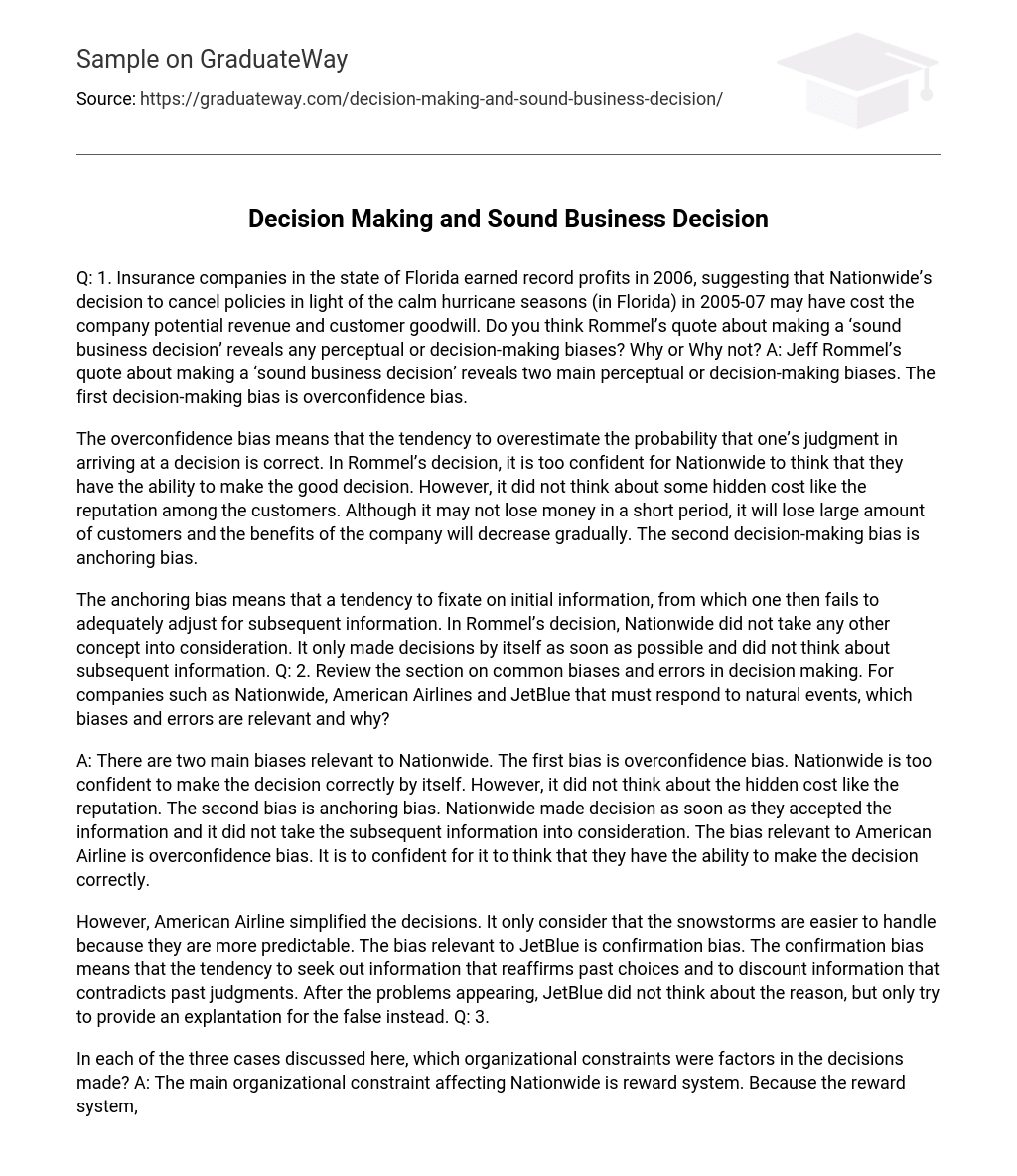Q: 1. Insurance companies in Florida made record profits in 2006, indicating that Nationwide’s choice to cancel policies due to calm hurricane seasons in Florida from 2005-2007 may have resulted in missed revenue and loss of customer goodwill. Do you believe that Rommel’s statement about making a ‘sound business decision’ demonstrates any biases in perception or decision-making? Why or why not?
A: Jeff Rommel’s statement regarding making a ‘sound business decision’ demonstrates two primary biases in perception or decision-making. The first bias is overconfidence bias.
The overconfidence bias refers to the tendency to overestimate the likelihood of one’s judgment being correct when making decisions. In the case of Rommel, Nationwide displays excessive confidence in their decision-making ability. However, they fail to consider hidden costs such as damage to their reputation among customers. While they may not experience immediate financial losses, they will gradually lose a significant number of customers and the company’s profitability will decline as a result. Another decision-making bias is the anchoring bias.
The anchoring bias refers to the inclination to become fixated on initial information and neglect to appropriately adjust for subsequent information. In Rommel’s decision, Nationwide failed to consider any other factors and instead promptly made decisions without taking into account subsequent information. When it comes to companies like Nationwide, American Airlines, and JetBlue that need to respond to natural events, it is important to consider which biases and errors are applicable and why in the section discussing common biases and errors in decision making.
A: There are two main biases relevant to Nationwide. The first bias is overconfidence bias. Nationwide is excessively confident in its decision-making abilities, without considering hidden costs such as reputation. The second bias is anchoring bias. Nationwide quickly made decisions based on initial information and did not consider subsequent information. The bias relevant to American Airline is also overconfidence bias. They are excessively confident in their ability to make the right decisions.
However, American Airlines has simplified the decision-making process by focusing solely on the predictability of handling snowstorms. The confirmation bias is applicable to JetBlue in this context, wherein there is a tendency to seek information that supports past decisions and disregard conflicting information. Following the emergence of problems, JetBlue did not critically analyze the underlying cause, but instead focused on providing an explanation for the errors.
When considering the three cases discussed here, the decisions made were influenced by various organizational constraints. For Nationwide, the primary constraint was its reward system. This led decision-makers to prioritize choices that aligned with the organization’s best interests, often disregarding other potential consequences. American Airlines, on the other hand, was primarily constrained by historical precedents. The decisions made in the present were heavily influenced by past choices that had been made over the years.
According to the past event, decision-makers believe that snowstorms are easier to handle because they are more predictable. The main constraint affecting JetBlue is formal regulations, which can limit the alternative choices of decision makers. In addition, if there is no explicit rule, decision-makers will not actively make decisions when emergencies occur.
Q: 4. How do Rommel, Burgin, and Neeleman consider ethics in their decisions? Do you think they take into account the welfare of policy owners and passengers when making decisions?





